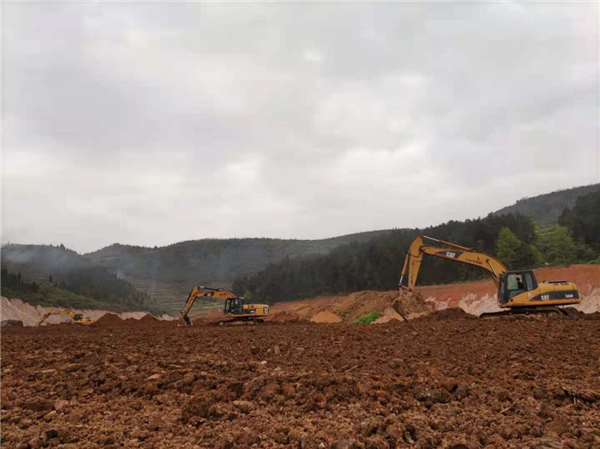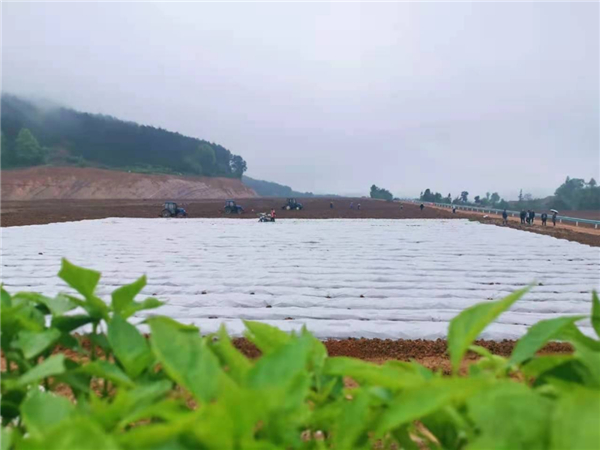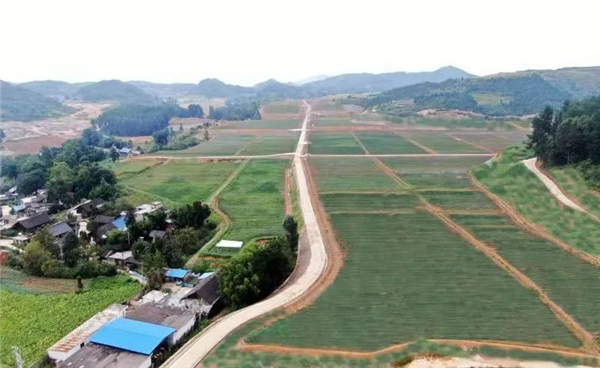Kaiyang advances plan for agricultural modernization

Two excavators turn over the rich soil in Zhaiji township. [Photo/Kaiyang Release]
Zhaiji township in Kaiyang county – located in Guiyang, capital city of Southwest China's Guizhou province – is speeding up implementation of the Wotu Plan, which aims to establish high-yielding farmlands for better grain production and quality.
Under the plan, sloping farmlands will be levelled, eliminating droughts and the thinning of fertilizers – to achieve large-scale, standardized and mechanized planting.
To date, Zhaiji township has deployed more than 160 mechanical vehicles – such as excavators, bulldozers and road rollers – to strip 3,300 mu (220 hectares) of cultivated topsoil, excavate 2.42 million cubic meters of earth and stone, backfill 2.39 million cu m of earth and stone, and build 21,500 cu m of retaining walls.
It has also completed 3,200 mu of land remediation and installed 19 kilometers of new flood drainage ditches.
In addition, Zhaiji township is strictly managing and protecting newly-added cultivated lands, and plans to build a high-standard vegetable supply base.

Tractors work in the lands in Zhaiji township, indifferent to a wet day. [Photo/Kaiyang Release]
It is understood that after the completion of the first phase of the Wotu Plan, Zhaiji township will be able to establish about 5,220 mu of high-standard farmlands and 115 mu of newly-cultivated lands.
It is estimated that the output of grain per mu of land will increase by more than 200 kilograms annually, and that for high-quality vegetables will be increased by 5-7 metric tons per mu.
Income from the lands will increase by an estimated 20,000 yuan per mu, boosting the earnings of 1,786 households by more than 4,000 yuan per person.
It is understood that the plan is playing an active role in helping the township's high-quality agricultural development and rural revitalization.

A panoramic view of the high-standard farmlands in Zhaiji township in Kaiyang county. [Photo/Kaiyang Release]
Presented by China Daily.
黔ICP备05001922号-3
